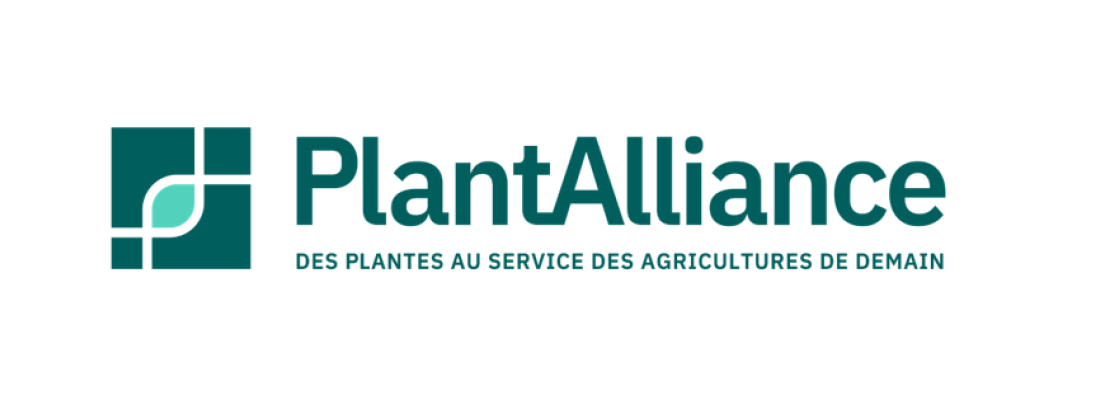Agroecology Reading time 3 min
PlantAlliance: driving innovation in plant genetics for sustainable agriculture
Published on 20 May 2021

The new PlantAlliance consortium is a research and innovation expert community made up of 28 public and private actors (companies, professional bodies and regional hubs) specializing in plant production and transformation. Its members have co-constructed a consensual scientific and technical roadmap with a focus on genetics, genomics, plant science and their interfaces with the fields of plant nutrition and protection, biocontrol, agronomy, cropping systems and digital technologies. With an annual budget from member contributions totaling 900 K€, PlantAlliance is set to make a difference over the coming decade.
This community has been born out of more than two decades of larger-scale public-private collaboration, first through the Génoplante initiative (1999-2009)[1] and then within the GIS Biotechnologies Vertes program (2010-2020)[2]. PlantAlliance provides a framework for continued collaboration, allowing members to direct their research and innovation activities towards the development of high-quality plant species and varieties that can help agriculture to achieve sustainable solutions to the impacts of climate change and are suitable for use in a wide range of cropping systems and modes of production.
PlantAlliance: missions and collaboration with other R and D communities
The alliance’s missions will serve three core functions:
- Animation: the alliance will provide an impetus for the public-private research community, soliciting research and development programs within the mainstream of genetics, genomics and plant science, while stimulating interdisciplinary work on plant nutrition and protection, biocontrol, agronomy and cropping systems, and on digital and agricultural technologies;
- Funding and training: the alliance will fund precompetitive research projects and support training through research;
- Lobbying: the alliance will elaborate and publicize joint positions on scientific issues and will be a sought-after point of contact for stakeholders at national and European levels.
PlantAlliance will achieve its goals through regular dialogue and active partnerships with research and innovation communities in the biocontrol and biostimulation sectors (such as the Biocontrol Consortium), in agronomy and cropping systems (for example, GIS Grandes Cultures à Hautes Performances Économiques et Environnementales, GC-HP2E), and with those at the forefront of digital farming and agricultural technologies.
Structure and governance: an alliance of all the talents
The 28 members of PlantAlliance include the top public research bodies in plant biology, major seed companies supplying field, forage, vegetable and vine crops, along with professional bodies and regional hubs.
Three separate groups are formally represented within the alliance:
- public institutions group: comprising 7 public organizations (AgroParisTech, CNRS, CEA, Cirad, INRAE, Institut Agro, IRD)
- private businesses group: representing 13 companies (Agri Obtentions, Cérience, Gautier Semences, GREENCELL SA, Hemp-It ADN, KWS, Lidea, Limagrain, MAS Seeds, Mercier, RAGT 2n, Secobra Recherches, Syngenta)
- professional bodies group: made up of professional technical institutes and regional competitivity hubs (Agri Sud-Ouest Innovation, ARVALIS – Institut du Végétal, Fédération Nationale des Producteurs de Plants de Pomme de Terre, Institut Français de la Vigne et du Vin, Institut Technique de la Betterave, Sofiprotéol, Vegenov, Vegepolys Valley).
A Members’ Council, a Strategy Group and a Managing Board oversee the activities of the alliance and have been operational since the beginning of 2021.
Further information: www.plantalliance.fr
[1] Created in 1999, the Génoplante network enabled the growth of a French community in plant genomics, bringing together public and private research to develop genomics programs for the major crops under cultivation. Initially supported by the French Ministries of Research and Agriculture, and then (2005-2010) by the French national funding agency for research (ANR), the program made a substantial contribution to academic knowledge, produced tools, platforms and resources, and fostered innovations with practical in-field applications (notably for maize, wheat, rapeseed, sunflowers and peas).
[2] In 2011, the official baton was passed to the Biotechnologies Vertes Group of Scientific Interest (GIS-BV), which took over the task of fostering the spirit of public-private cooperation developed within the Génoplante network. The partnership was broadened, benefiting from the introduction of the French PIA Investment for the Future Program. 9 PIA projects and more than a hundred ANR projects were thus created under the GIS BV label, providing a key driver for the group’s scientific and educational activities
|
Membres de PlantAlliance 
|
